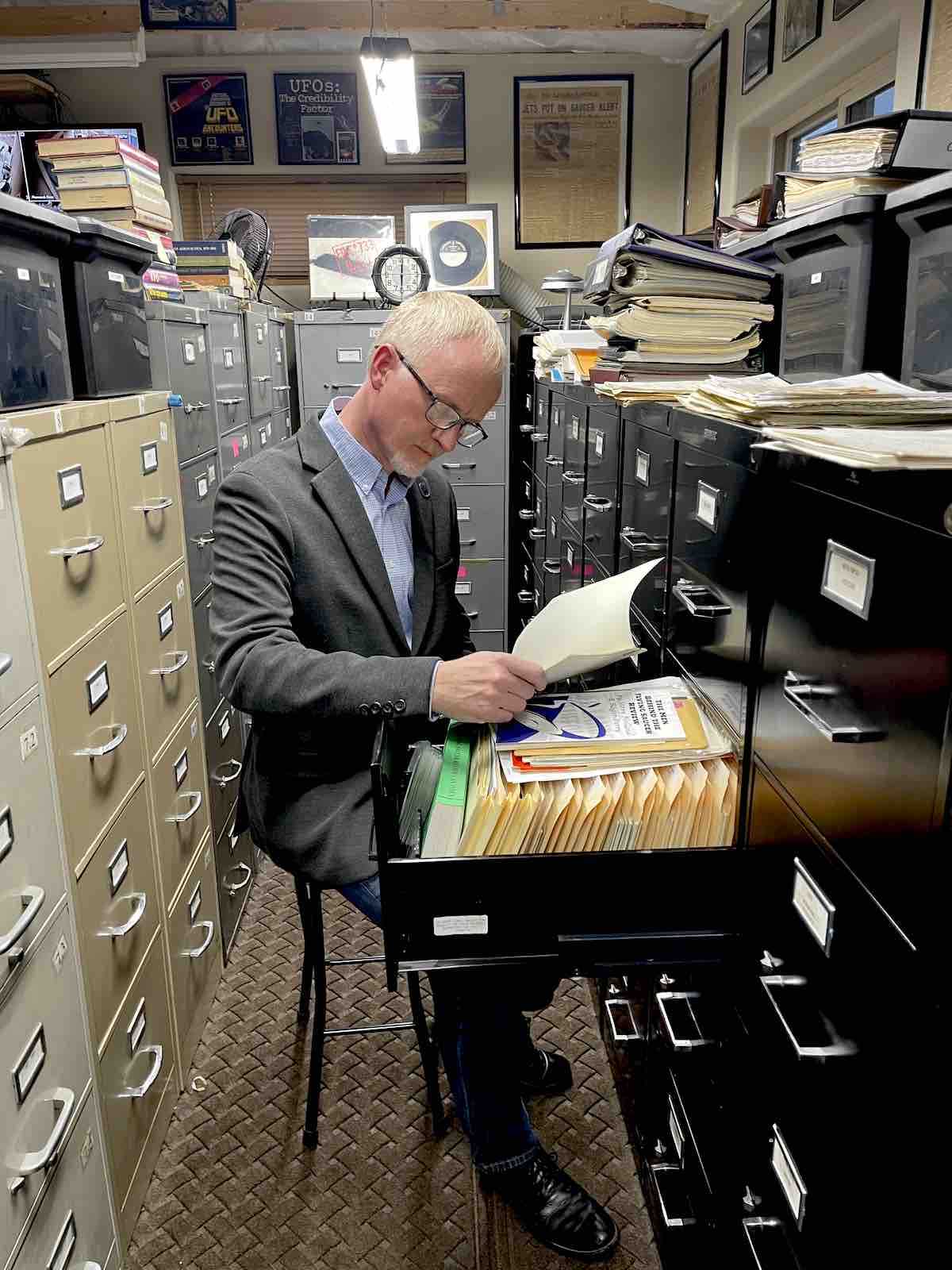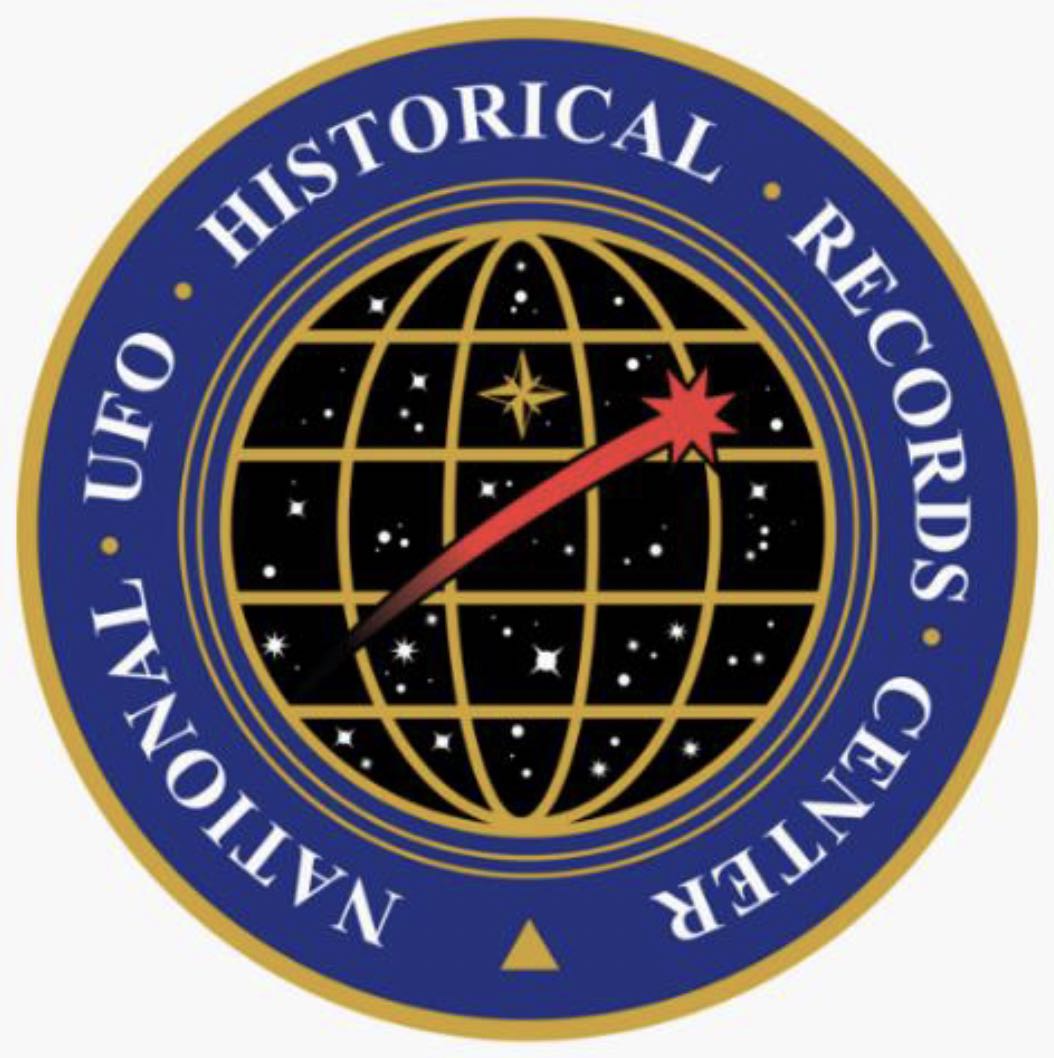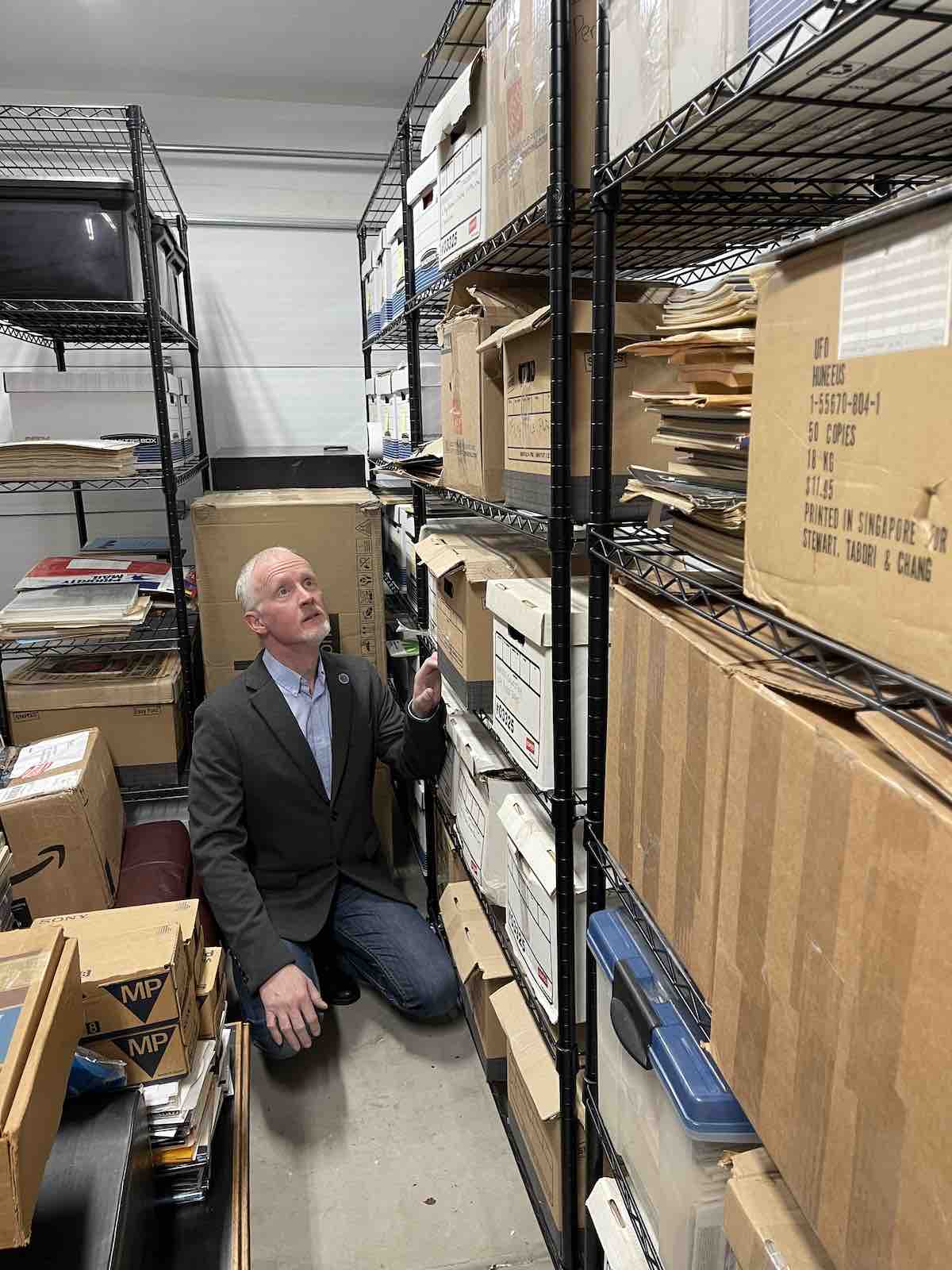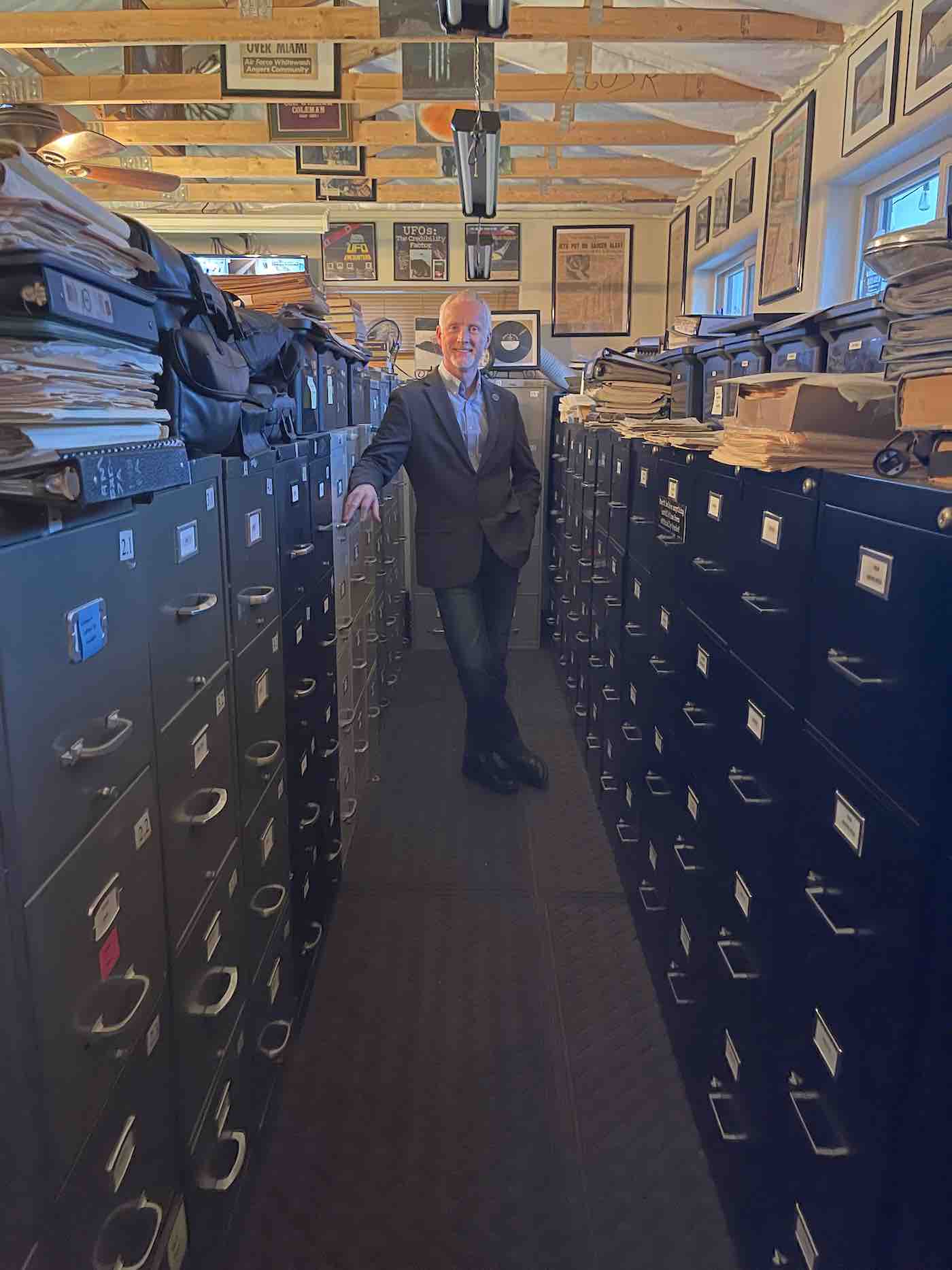Nation’s Largest Center for Historical Records on UFOs to be Established in New Mexico
The largest historical archive of records on unidentified aerial phenomena in the nation will be unveiled in New Mexico in the coming years, according to a group of leading UFO historians and archivists.
The National UFO Historical Records Center (NUFOHRC) will be “dedicated to the preservation and centralization of UFO/UAP information in the United States,” according to a press release announcing the new non-profit organization.
Led by researcher and historian David Marler, the organization has announced its plans to have its archive housed at a facility in the Albuquerque, New Mexico, area.
Drawing from collections housed by several researchers from across the country, the National UFO Historical Records Center will feature documents from the collections of archivists Jan Aldrich, Rod Dyke, Barry Greenwood, Rob Swiatek, and several others.
Notably, the organization’s New Mexico facility will also house collections owned by the J. Allen Hynek Center for UFO Studies, following the transfer of files by its director, Mark Rodeghier, Ph.D., to Marler in November 2020. Included with this collection are the personal files of J. Allen Hynek, the Center’s namesake, who served as scientific advisor to the U.S. Air Force’s official UFO investigations for close to two decades.

Marler is currently also in possession of the files formerly maintained by the National Investigations Committee on Aerial Phenomena (NICAP), which at one time represented the largest civilian UFO investigative organization in the United States, and says that as many as a dozen more private UFO collections have already been promised to be delivered to the facility over the next two years.
“With the accumulated data, we hope to assist with serious research endeavors and aid in an accurate chronicling of UFO/UAP history for present and future generations regardless of belief or non-belief in the subject,” read a portion of a press release issued by the group.
Marler, who spoke with The Debrief at length about the new endeavor, expressed appreciation for the renewed public interest in the UFO subject seen in recent years.
“What I find though is that, despite the ever-increasing amount of people that are looking at the UFO or UAP subject, not a lot of people—a very small percentage—are interested in the history,” Marler told The Debrief.
“Everyone wants to know what’s new,” Marler says, “and part of that is due, I think, to the framework by which the intelligence community [and] the media in recent years has framed the discussion; this ‘new’ discussion.”

“Everyone seems to be looking at 2004 moving forward,” Marler told The Debrief, noting that “we know that this history is diverse and rich and stretches many decades back, if not even further.”
“I’m trying to preserve the history of the pre-2004 era,” Marler says. “Much of which the general public has not seen.”
Apart from historical documents related to UFOs from the United States, Marler says the new organization will also be home to records from countries in South America and other parts of the world, the inclusion of which will aim to provide a more diverse historical perspective on the subject and its global presence.
“We have a diverse history beyond just domestic United States case files,” Marler told The Debrief, noting that he is currently working with translators to produce English versions of documentation from Spanish and French-speaking countries.

Longtime researcher Barry Greenwood, who has collected historical information on UFOs from periodicals and other publicly available sources, as well as through the persistent—and successful—use of Freedom of Information Act (FOIA) requests over the course of several decades, emphasized the importance of having publicly accessible digitized records on UFOs.
“I think it’s the culmination of efforts by a lot of people in the past,” Greenwood told The Debrief. “If we make an effort to, say, scan the material and issue it in different portions to different sites, it can be used all over the world.”
“That’s incredible,” Greenwood added. “I remember the days when we couldn’t access anything much outside the United States and Canada.”
“So this is a big deal.”
Echoing Greenwood’s statements, Marler emphasized the critical importance of making historical records related to UFO investigations available to the public, as well as their centralization.
“We’re at a very critical juncture right now, as it relates to the UFO subject, but specifically UFO history,” Marler says. “We have a whole new era of legitimacy applied to the UFO subject that we’ve never had before,” Marler adds, noting the involvement of government agencies like NASA, who only months ago announced that it would conduct its own study of UAP, as well as independent efforts by scientists and organizations who are taking the subject seriously.
A similar renewed interest has been seen amidst professional aviation organizations. In recent days, the American Institute of Aeronautics and Astronautics (AIAA) announced the launch of its UAP Community of Interest, an effort spearheaded by former Navy F/A-18 Super Hornet fighter pilot Ryan Graves.

“We have all of these people expressing interest, and even in the National Defense Authorization Act (NDAA) for 2023, they finally are addressing the history,” Marler said in reference to language in current drafts for the forthcoming FY 2023 NDAA.
“Our efforts are to centralize the UFO historical records in this country, but also to digitize it,” Marler says.
Marler says the Albuquerque area was selected to be the home of the new archival center based on New Mexico’s historical relationship to the UFO subject, citing several notable events that date back to the years just after the Second World War. Marler has also made inroads toward future collaborations with the University of New Mexico that may include student work aid programs, where a new generation of archivists can assist in ongoing collection management and digitization efforts.
With the announcement of its proposed facility, the organization has launched an official website, where it will accept donations from the public who may be interested in supporting its effort to provide a home for these historical records.
“There are no National Archives of Ufology,” Marler says, adding that he and his colleagues aspire for their new facility to represent the largest single UFO historical archive to have ever existed in the United States.
“Now there will be.”
Micah Hanks is Editor-in-Chief and Co-Founder of The Debrief. Follow his work at micahhanks.com and on Twitter: @MicahHanks.
This article has been archived for your research. The original version from The Debrief can be found here.



